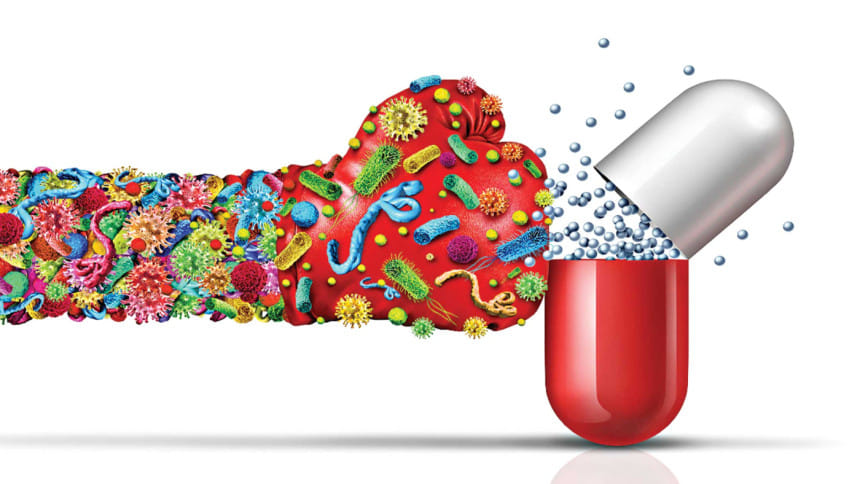Coordinated action needed to tackle antimicrobial resistance

Antibiotic resistance (AMR) is one of the biggest public health challenges of our time. Fighting this threat is a public health priority that requires a collaborative global approach across sectors. It requires urgent multisectoral action in order to achieve the Sustainable Development Goals (SDGs).
The World Health Organisation (WHO) has declared that AMR is one of the top 10 global public health threats facing humanity.
AMR occurs when bacteria, viruses, fungi and parasites change over time and no longer respond to medicines making infections harder to treat and increasing the risk of disease spread, severe illness and death. Misuse and overuse of antimicrobials are the main drivers in the development of drug-resistant pathogens. Also, lack of clean water and sanitation and inadequate infection prevention and control promotes the spread of microbes, some of which can be resistant to antimicrobial treatment.
The cost of AMR to the economy is significant. In addition to death and disability, prolonged illness results in longer hospital stay, the need for more expensive medicines, and financial challenges for those impacted.
According to World Bank, each year, 700,000 people die of AMR. Without action, the death toll could rise even higher, to as many as 10 million deaths annually by 2050. As a result of drug resistance, antibiotics and other antimicrobial medicines become ineffective and infections become increasingly difficult or impossible to treat.
Every year, from November 18 to 24, World Antimicrobial Awareness Week (WAAW) is observed. The 2021 theme, Spread Awareness, Stop Resistance, calls on stakeholders, policymakers, healthcare providers, and the general public to be Antimicrobial Resistance (AMR) Awareness champions.
Among the primary causes of mortality and morbidity, maternal infections and sepsis account for at least 11% of maternal deaths. Most maternal infections and their repercussions can be avoided by implementing appropriate practices, prenatal screening, and antibiotic use.
Also, antifungal resistance is becoming a significant public health concern around the world. Antifungal medications now on the market are frequently linked to severe side effects. Few new drugs are under development. Other ailments are commonly made worse by fungal infections.
The severe consequences of mucormycosis and invasive aspergillosis during the COVID-19 pandemic recently demonstrated this. This event will introduce World Health Organisation (WHO)'s solution to the problem, including creating a worldwide priority fungal infections list with public health implications.
This year's event looked at how chosen technologies, such as linked diagnostics and AMR (Anti-Microbial Resistance) stewardship, can support the proper use of antimicrobial drugs and how they can help accomplish relevant United Nations (UN) Sustainable Development Goals (SDGs) and associated targets.
This year, an event also took place to enlighten about the Tailoring Antimicrobial Resistance Programmes (TAP) Quick Guide and Toolbox recently developed by the WHO Regional Office for Europe.
Through a behavioural insights approach, these technologies attempt to boost efforts to combat antibiotic resistance. The TAP Quick Guide is a practical, step-by-step approach to designing and implementing a targeted behaviour modification intervention to address human and animal health AMR factors.
The HIV Drug Resistance Report 2021 was launched as a part of the World Antimicrobial Awareness Week 2021. It aimed to spread awareness of the burden of HIV drug resistance and advocated to stop HIV drug resistance by implementing a comprehensive prevention and response approach involving all stakeholders as outlined in the WHO global action plan to prevent, monitor, and respond to HIV drug resistance.
Common illnesses will become untreatable as antimicrobial resistance rises unless the world takes coordinated action across the human, animal, plant, and environmental health sectors. Therefore, there is a need for immediate action. Civil society has a critical role in mobilising different stakeholders, including governments, donors, academia, and the general public, in taking action.

 For all latest news, follow The Daily Star's Google News channel.
For all latest news, follow The Daily Star's Google News channel. 



Comments